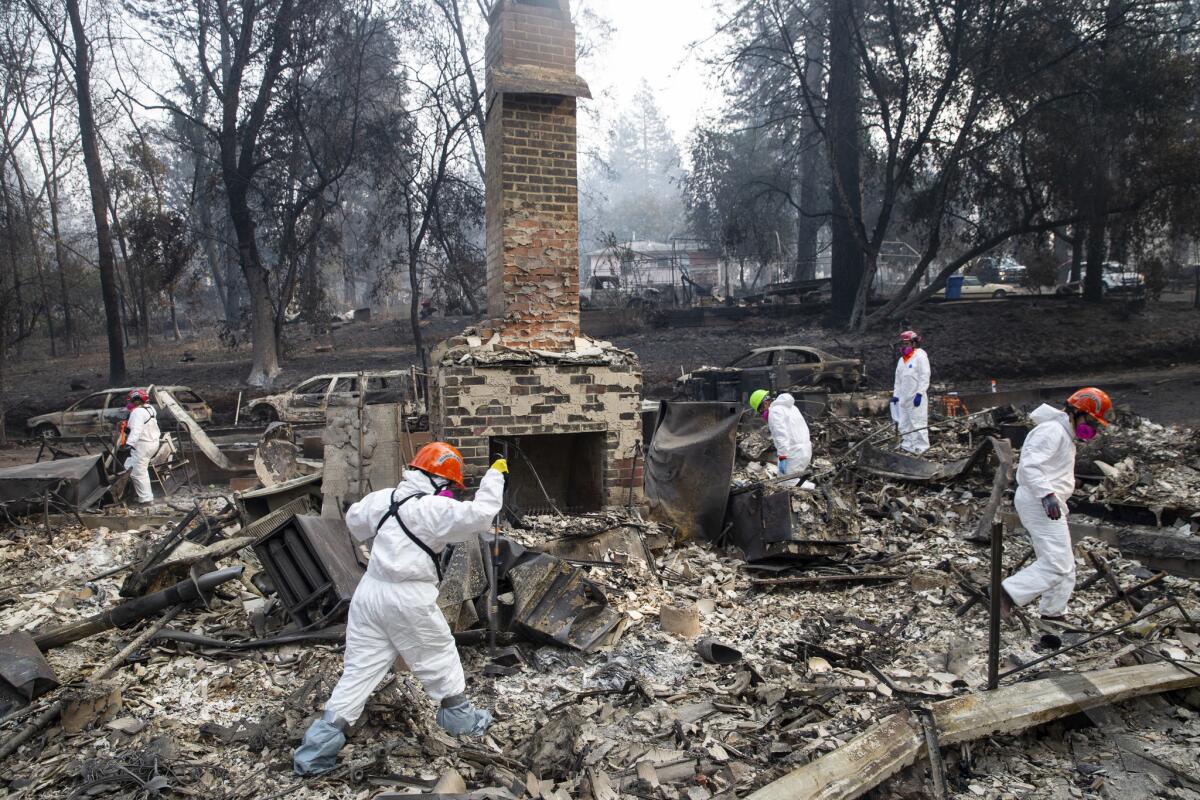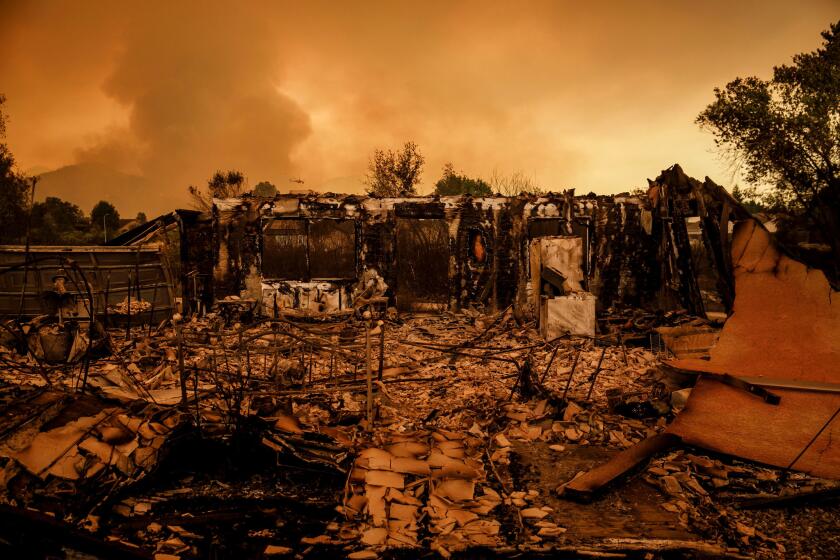Sen. Kamala Harris introduces bill to boost towns’ wildfire preparedness

- Share via
WASHINGTON — California Sen. Kamala Harris introduced a bill Thursday that would set aside $1 billion each year to pay for better infrastructure, land-use and evacuation route planning in fire-prone communities.
The proposed legislation would benefit cities and towns throughout the country, but especially those in California, where many communities are vulnerable and residents are struggling to adapt to longer and more intense fire seasons.
With funds from the Federal Emergency Management Agency, Harris’ bill, called the Wildfire Defense Act, would award municipalities grants of up to $250,000 to develop defense strategies. This could include plans to fireproof critical infrastructure and homes, evacuate residents — particularly elderly and disabled people — and improve land-use planning.
The bill also touches on a sore subject for Californians: the state’s aging power grid. Though this year’s wildfire season has been relatively mild compared with the devastation experienced in 2018, utilities cut electric service to large parts of the state as a preventative measure, leaving millions of people without power for days.
Harris’ bill would allow municipalities to use grant money to bolster their energy infrastructure with microgrids and battery storage, which can supply power to residents even when the main power grid isn’t providing electricity.
Once communities have a plan in place, the proposed legislation would offer them up to $10 million to implement it. Preference would go to low-income areas and places recently affected by wildfire.
“As the climate crisis creates the conditions for more widespread and intense wildfires than ever before, Californians must not be made to fight alone,” Harris said in a statement.
About 1 in 4 Californians live in areas that are thought to be at high risk of wildfire, according to a recent report by California Department of Forestry and Fire Protection, the state’s firefighting agency. And though most Californians say there should be limits on future development in fire-prone areas, the state’s politicians are reluctant to limit growth in the midst of a severe housing shortage.
Many communities have already been built in dangerous places that have burned before and likely will again, yet few are prepared for this possibility. An often-cited example of this is the town of Paradise, where a fast-moving wildfire killed 86 people last year and destroyed more than 13,900 homes.
A Los Angeles Times investigation found that despite warnings that Paradise risked an ember firestorm, the town’s leaders never developed a plan to evacuate the entire area at once and waited too long to issue citywide orders to flee.
Harris’ bill faces uncertain odds in Congress, where lawmakers have delayed efforts to reach a deal to fund government operations through September 2020.
While the Democratic-majority House and Republican-controlled Senate have shown interest in increasing wildfire spending, funding for prevention has typically taken a backseat to new funds to combat fires.
In late October, the Senate approved measures increasing wildfire suppression funding by $1.2 billion next year. Other provisions, secured by Sen. Dianne Feinstein (D-Calif.), would set aside $150 million for preventative steps like removing dead and dying trees and $5 million to study the long-term effects of wildfire smoke on the state’s wine industry.
More to Read
Get the L.A. Times Politics newsletter
Deeply reported insights into legislation, politics and policy from Sacramento, Washington and beyond. In your inbox twice per week.
You may occasionally receive promotional content from the Los Angeles Times.












